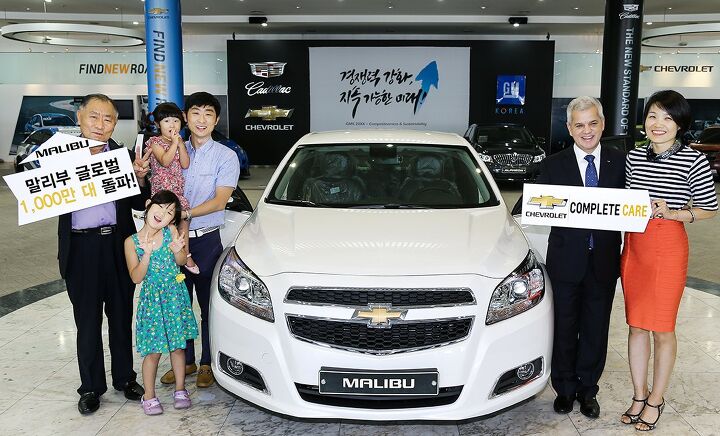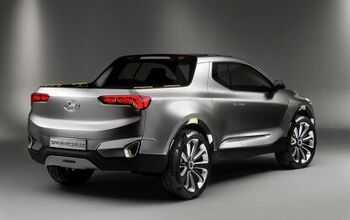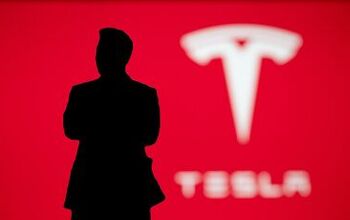U.S. Attempts to Convince South Korea to 'Buy American'

Officials from the United States and South Korea held a special session in Washington on Wednesday as part of U.S. Trade Representative Robert Lighthizer’s request to consider amending the two countries’ trade agreement. The joint talks serve to reassess the countries’ five-year pact, with the Trump administration aiming to diminish America’s growing trade deficit with South Korea.
One of the largest issues concerns the automotive industry. Korean rules stipulate a cap on the number of vehicles U.S. automakers can bring into the country each year that adhere to the country of origin’s safety standards. Presently, that quota sits at 25,000 vehicles per manufacturer. However, no U.S. company has ever made full use of the quota. General Motors, which is the most popular U.S. brand in South Korea, only sold 13,150 domestically built units in 2016.
Still, Western officials are expected to pressure South Korea into permitting more vehicles into the country in hopes of closing its $17.6 billion trade deficit with the Asian nation.
The talks are a second attempt between the countries to reach an agreement after an initial meeting in August ended in a stalemate. Korean officials are rumored to have been less than interested in revising the agreement, made during the Obama administration. But what good raising the cap on the number vehicles exported from the United States would do is unclear when no automaker has yet to reach it.
In Korea, U.S. imports are seen as inferior to most German brands in terms of sophistication, fuel economy, and build quality. Japan has a similar outlook on American automobiles that has influenced the country’s buying trends for ages. The silver lining is that American-made EVs don’t seem to suffer from the same stigma as internal combustion cars. Chevrolet’s Bolt received a warmer than expected welcome in the Korean peninsula while Tesla dealers have a six-month waiting period for anyone who wants to test drive one of its vehicles. It’s actually quicker just to purchase one and have it shipped over.
With more electrics forthcoming, Korea’s appetite for U.S. autos could grow. So, assuming a hot ticket American model does hit the 25,000 unit quota in the years to come, problems could arise. It could cost millions of dollars for a single model to be modified in order to meet Korean safety standards and the likelihood of that contingency occurring has grown. South Korea imported a total of 13,669 cars from the United States in 2011, but that number had grown to 49,096 units by 2016.
[Source: Bloomberg] [Image: General Motors]

A staunch consumer advocate tracking industry trends and regulation. Before joining TTAC, Matt spent a decade working for marketing and research firms based in NYC. Clients included several of the world’s largest automakers, global tire brands, and aftermarket part suppliers. Dissatisfied with the corporate world and resentful of having to wear suits everyday, he pivoted to writing about cars. Since then, that man has become an ardent supporter of the right-to-repair movement, been interviewed on the auto industry by national radio broadcasts, driven more rental cars than anyone ever should, participated in amateur rallying events, and received the requisite minimum training as sanctioned by the SCCA. Handy with a wrench, Matt grew up surrounded by Detroit auto workers and managed to get a pizza delivery job before he was legally eligible. He later found himself driving box trucks through Manhattan, guaranteeing future sympathy for actual truckers. He continues to conduct research pertaining to the automotive sector as an independent contractor and has since moved back to his native Michigan, closer to where the cars are born. A contrarian, Matt claims to prefer understeer — stating that front and all-wheel drive vehicles cater best to his driving style.
More by Matt Posky
Latest Car Reviews
Read moreLatest Product Reviews
Read moreRecent Comments
- SCE to AUX This was the same car I had (05 xB, stick, "camouflage" color) for 7 years - great car.We called ours "The Lunchbox". I added aftermarket wheels, and the 3rd-party cruise control the dealers could install.It suffered only two failures: bad window switch in week 2 (dealer fixed in 1 hour), bad trailing O2 sensor (fixed myself for $70). Fuel economy was always 28-34 mpg.It was a potential death trap, and ride quality became unbearable after 2 hours. I once did a 10-hour round trip in it and could barely walk after.Traded it for a 2012 Leaf, which was a better car in some ways.
- Bd2 The "e" nomenclature signifies the e-ATPs which BMW is pursuing.
- Dave M. I'm sorry to see any storied name go away. The lifespan of the Malibu has fit perfectly in my lifetime years-wise. Some of the highlights include the first and second generations, the '78 revamp (very clean design), and the 2005 generation. Ford, GM and Mopar gave this segment away by allowing Toyota and Honda a foot in the door and then always having to play catch-up. How hard is it to make a truly competitive sedan at a profit? Obviously, Japan Inc. figured it out.I've driven a few rentals these past years; the Malibu got the job done but honestly the Passat and Altima were my rental preferences.
- Kcflyer actually yes. It's a shame that a product this uncompetitive can still outsell GM's entire EV offerings. Those products have had billions thrown at them. Imagine how nice the new Malibu, Impala, SS, and Lacrosse would be with that kind of commitment.
- 3SpeedAutomatic Nope....


































Comments
Join the conversation
They are a smart people that's why the don't buy 'merican car. American cars suck.
Why don't we just sell some US made Corolla or Civic over there? Problem solved. If you want to sell American cars outside of US, stop designing them with retro styles that make no sense to them. Sure, some people think the 08 Camry as ugly and Corvette as good looking. Most foreigner think otherwise, maybe if you want to sell American cars there, design a few models for that market instead of dumping our design (that the Coastal US cities don't even sell well) there, no? p.s. Please fix the interior quality. I don't care for the "soft touch" material that is glued onto the dash and the painted plastic and electroplated chrome bits that will fall off and discolor in a few years. And if you absolutely have to use them, please line them up so it doesn't look like a $5 3-pack tupperware.